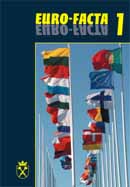Nacjonalizm jako mit polityczny
Nationalism as a political myth
Author(s): Joanna KołodziejSubject(s): Politics / Political Sciences
Published by: KSIĘGARNIA AKADEMICKA Sp. z o.o.
Keywords: political myth; nationalism
Summary/Abstract: In all critical moments of man’s social life, the rational forces that resist the rise of old mythical ideas are no longer sure of themselves. In these moments all mythical conceptions reappear and become a prominent feature in the sphere of political action. Political myth, a fantasy of a better world, cannot be simply discarded as infantile daydreaming. Although some myths are vindictive, and potentially disastrous, others are favorable to dialogue and a commitment to a free community of equal individuals. It is always a matter of interpretation and the same myth can be used for expansion or limitation of one’s freedoms and responsibilities. The present thesis has been prepared to present national mythologies – conceptions that had dominated collective imagination of the Eastern European societies. Th e first part is devoted to present several selected theoretical concepts which characterize the essence of modern myth and describe direct relation between myth and policy. They are: G. Sorel’s concept of political myth, E. Cassirer’s philosophical concept of political myth, and the concept of political myth put forward by V. Tismaneanu. In the second part of my study I have focused on a few different definitions and typologies of nationalism, which I consider the most interesting and most significant of all. In these part I have also attempted to present and analyze phenomena which I have deemed the most essential for the arisen of mythologization of the political life. The final part of the work is devoted to present and explain the phenomenon of the mythologization of the political life in Eastern European countries. A very important component of this analysis is presentation how extreme nationalistic and authoritarian thought has been influential in Eastern Europe for much of this century, while liberalism has only shallow historical roots. Despite democratic successes in Czech Republic and Poland it would be a mistake for the West to assume that liberalism will always triumph. Nationalist intellectuals have encouraged ethnic hatred in such countries as Russia, Romania, and the former Yugoslavia by reviving patriotic myths of heroes, scapegoats, and historical injustices. Often focused on the past, the new mythologies are actually discourses about the present and especially the future of post-Communist societies. The main aim of these thesis was to introduce how the mythology of the nation explaining brutal reality had created particular intellectual rigours, moral standards and archetypal personalities which had efficiently steered collective imagination in the last decades and shows howenthusiastically these myths have been welcomed by people desperate for some form of salvation from political and economic uncertainty.
Journal: Euro-Facta
- Issue Year: 2008
- Issue No: 1
- Page Range: 367-383
- Page Count: 17
- Language: Polish

